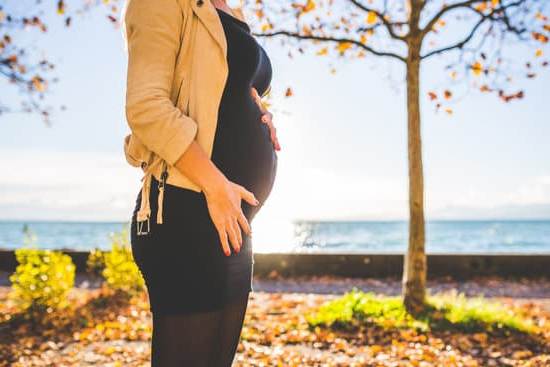Are you wondering how early to take a pregnancy test? Understanding when and how to take a pregnancy test can be crucial for accurate results. In this article, we will explore the early signs of pregnancy, the different types of pregnancy tests available, and when is the best time to take a pregnancy test for reliable results.
Pregnancy tests are an essential tool in determining whether or not you are pregnant. These tests work by detecting the hormone hCG (human chorionic gonadotropin) in your urine or blood. Understanding how these tests work and when to take them can help you get the most accurate results.
In the following sections, we will delve into the menstrual cycle, ovulation, and early symptoms of pregnancy. We will also discuss the different types of pregnancy tests available and provide tips for taking a pregnancy test for optimal accuracy. Whether you are hoping for a positive result or preparing for a negative one, knowing when and how to take a pregnancy test is the first step in your journey towards motherhood.
Understanding the Menstrual Cycle and Ovulation
The menstrual cycle and ovulation play a crucial role in understanding how early to take a pregnancy test. Understanding these processes can help women determine the best time to take a pregnancy test for accurate results.
Menstrual Cycle
The menstrual cycle typically lasts about 28 days, although it can range from 21 to 35 days in adult women. Day one of the cycle is the first day of your period, and ovulation usually occurs around day 14. The menstrual cycle is regulated by hormones, with fluctuations throughout the month that prepare the body for pregnancy.
Ovulation
Ovulation is the release of an egg from the ovaries, which typically occurs around mid-cycle. This is the most fertile time of the menstrual cycle, as sperm can survive in the reproductive tract for several days waiting for an egg to be released. It’s important to keep track of your ovulation to increase the chances of getting pregnant if desired and understand when it’s appropriate to take a pregnancy test.
Impact on Pregnancy Testing
Understanding your menstrual cycle and ovulation is essential in determining when to take a pregnancy test. For those with regular cycles, taking a test after a missed period may yield accurate results. However, for those with irregular cycles or who are unsure about their ovulation timing, it may be necessary to wait longer before taking a test. Tracking your cycle and paying attention to physical symptoms can help determine how early to take a pregnancy test for reliable results.
Early Pregnancy Symptoms
Common Early Pregnancy Symptoms
Many women may start experiencing early pregnancy symptoms even before a missed period. Some of the most common early signs of pregnancy include nausea, breast tenderness, fatigue, frequent urination, and food aversions. Some women may also notice implantation bleeding, which occurs when the fertilized egg attaches to the uterine lining.
When to Expect Early Pregnancy Symptoms
Early pregnancy symptoms can vary from woman to woman, but they typically start around one to two weeks after conception. It’s important to note that these symptoms can also be similar to PMS (premenstrual syndrome) symptoms, so it can sometimes be difficult to differentiate between the two. However, if you experience any of these symptoms along with a missed period, it may be time to consider taking a pregnancy test.
Should I Take a Pregnancy Test Based on Symptoms?
While some women may choose to take a pregnancy test based on early symptoms alone, it’s important to remember that the only way to confirm a pregnancy is through a pregnancy test. Early symptoms can give an indication that you might be pregnant, but they are not definitive proof. If you suspect you may be pregnant based on your symptoms or timeline of conception and want confirmation, it’s best to take a pregnancy test as soon as possible.
Types of Pregnancy Tests and How They Work
Understanding the different types of pregnancy tests and how they work is essential for anyone contemplating taking one. The two main types of pregnancy tests are urine tests and blood tests. Urine tests, which are commonly used at home, detect the level of hCG (human chorionic gonadotropin) in the urine, a hormone produced during pregnancy. These over-the-counter tests can be easily found at drugstores and pharmacies, and provide results within minutes.
On the other hand, blood tests, which are typically done at a healthcare provider’s office, measure the amount of hCG in the blood. There are two types of blood tests for pregnancy: quantitative and qualitative. Quantitative blood tests determine the exact amount of hCG present in the blood, while qualitative blood tests simply confirm whether hCG is present or not.
Regardless of the type of test, both urine and blood tests work by detecting hCG to determine if a woman is pregnant or not. It’s important to note that while both types of pregnancy tests are highly accurate when used properly, there are factors that can affect their accuracy such as testing too early or using expired tests.
If you are wondering how early to take a pregnancy test for accurate results, it is generally recommended to wait until after your missed period for a more reliable outcome.
How Early Can I Take a Pregnancy Test?
When it comes to taking a pregnancy test, many women wonder how early they can take one in order to get an accurate result. The timing of when you take a pregnancy test can greatly affect its accuracy, and understanding the best time to take the test can help alleviate some of the uncertainty that comes with waiting for results.
There are many factors that can affect when is the best time to take a pregnancy test. Women who have irregular menstrual cycles or do not know their ovulation date may find it challenging to pinpoint when to take a pregnancy test. However, there are some general guidelines that can help determine the appropriate time for testing.
Here are some key points on how early to take a pregnancy test:
- It is recommended to wait until you have missed your period before taking a pregnancy test. This is because most at-home tests are designed to detect the hormone hCG, which is only present in significant amounts once implantation has occurred.
- If you cannot wait until you have missed your period, some tests on the market claim they can detect pregnancy as early as 6 days before your missed period. However, it’s important to note that these early detection tests may not be as accurate and could result in false negatives.
- The best time to take a pregnancy test for accurate results is usually about one week after your missed period. Waiting until this point will give your body enough time to produce detectable levels of hCG if you are pregnant.
Knowing how early to take a pregnancy test will give you more confidence in the accuracy of the results. It’s important to consider your own unique circumstances and consult with a healthcare professional if you have any concerns about when to take the test for the most reliable results.
Factors Affecting the Accuracy of Pregnancy Tests
When it comes to taking a pregnancy test, there are various factors that can affect its accuracy. It’s important to consider these factors to ensure the most reliable results. Here are some key factors that can impact the accuracy of pregnancy tests:
1. Timing: The timing of when you take a pregnancy test can greatly affect its accuracy. It is recommended to wait until after you have missed your period before taking a home pregnancy test for the most reliable results. Testing too early may result in a false negative.
2. Type of Test: There are different types of pregnancy tests available, including urine tests and blood tests. While urine tests are commonly used at home, blood tests are more accurate and can detect pregnancy earlier than urine tests.
3. Expired or Faulty Tests: Using an expired or faulty pregnancy test can also lead to inaccurate results. It is important to check the expiration date and follow the instructions carefully when taking a pregnancy test.
4. Medications and Medical Conditions: Certain medications and medical conditions can interfere with the results of a pregnancy test. It’s important to consult with a healthcare provider if you have any concerns about how these factors might impact the accuracy of your test.
By being aware of these factors, you can ensure that you are taking a pregnancy test at the right time and under the best circumstances for accurate results.
Tips for Taking a Pregnancy Test
Taking a pregnancy test can be an anxious and nervous time for many women. If you suspect you might be pregnant, it is important to know how early to take a pregnancy test for accurate results.
Most home pregnancy tests claim to provide 99% accuracy on the first day after a missed period, but this may not always be the case. Here’s what you need to know about when to take a pregnancy test and how to ensure the most accurate results.
It is recommended to wait at least one week after a missed period before taking a home pregnancy test for the best chance of accuracy. However, some tests claim to be able to detect the pregnancy hormone, hCG, as early as 4-5 days before a missed period. It’s important to note that while these early detection tests exist, they may not always provide reliable results at such an early stage.
Factors such as the sensitivity of the test, the concentration of hCG in your urine, and the regularity of your menstrual cycle can all affect the accuracy of a pregnancy test. When in doubt, it is best to consult with a healthcare professional for guidance on when and how early to take a pregnancy test.
| Recommended Timeframe | Accuracy Rate |
|---|---|
| At least one week after missed period | Most accurate |
| 4-5 days before missed period | May not always be reliable |
What to Do if Your Pregnancy Test Is Positive or Negative
When it comes to taking a pregnancy test, many women wonder how early they can accurately detect a pregnancy. The timing of when to take a pregnancy test can be crucial in obtaining an accurate result. While some tests claim to be able to detect pregnancy as early as six days before the missed period, it is important to consider factors that may affect the accuracy of the test.
Typically, it is recommended to wait until the first day of your missed period before taking a pregnancy test for the most accurate results. This is because the levels of hCG, the hormone detected in pregnancy tests, may not be high enough to register a positive result before this time. However, some early detection tests on the market claim to be able to pick up on lower levels of hCG earlier than others.
It’s important to keep in mind that while some tests may advertise the ability to detect pregnancy early, there is no guarantee of accuracy until after the first day of your missed period. Factors such as irregular menstrual cycles and incorrect usage of the test can also affect its reliability. If you suspect you may be pregnant but receive a negative result, it is advisable to wait a few days and then retest for more accurate results.
| Early Pregnancy Test | Accuracy |
|---|---|
| Regular Pregnancy Test (after missed period) | 99% accurate |
| Early Detection Pregnancy Test (before missed period) | 76% accurate |
Conclusion and Next Steps
In conclusion, the timing of when to take a pregnancy test is crucial in obtaining accurate results. Understanding the menstrual cycle and ovulation can help determine the best time to take the test, as it is recommended to wait until after a missed period for the most reliable results.
Early pregnancy symptoms such as nausea, fatigue, and breast tenderness may also prompt some women to take a pregnancy test sooner. However, it is important to consider factors that can affect the accuracy of the test, such as medication or fertility treatments.
When deciding how early to take a pregnancy test, it is essential to choose a reliable brand and follow the instructions carefully to ensure an accurate result. Additionally, being aware of tips for taking a pregnancy test and understanding what to do if the test is positive or negative can provide guidance for your next steps. It is always advisable to consult with a healthcare professional for further confirmation of your pregnancy and to discuss prenatal care.
Overall, knowing how early to take a pregnancy test is vital in providing peace of mind for those trying to conceive or those who may have had an unplanned pregnancy. By understanding the various types of tests available and considering factors that can impact their accuracy, individuals can confidently navigate this important aspect of family planning and maternal health.
Frequently Asked Questions
How Soon Will a Pregnancy Test Read Positive?
A pregnancy test can read positive as early as 7-10 days after conception, but for accurate results, it’s best to wait until the first day of a missed period. This allows the hCG hormone to build up in the body to detectable levels.
What Pregnancy Test Will Show the Earliest?
The most sensitive pregnancy tests that can show the earliest results are those that detect lower levels of hCG in the urine. Some tests may be able to detect pregnancy a few days before a missed period, but accuracy may vary.
How Long Does It Take for hCG to Show Up in Urine?
It takes about 7-14 days after conception for hCG to show up in urine at levels high enough to be detected by a home pregnancy test. The hormone doubles every 2-3 days during early pregnancy, so waiting a few more days can lead to more accurate results.

Welcome to my fertility blog. This is a space where I will be sharing my experiences as I navigate through the world of fertility treatments, as well as provide information and resources about fertility and pregnancy.





